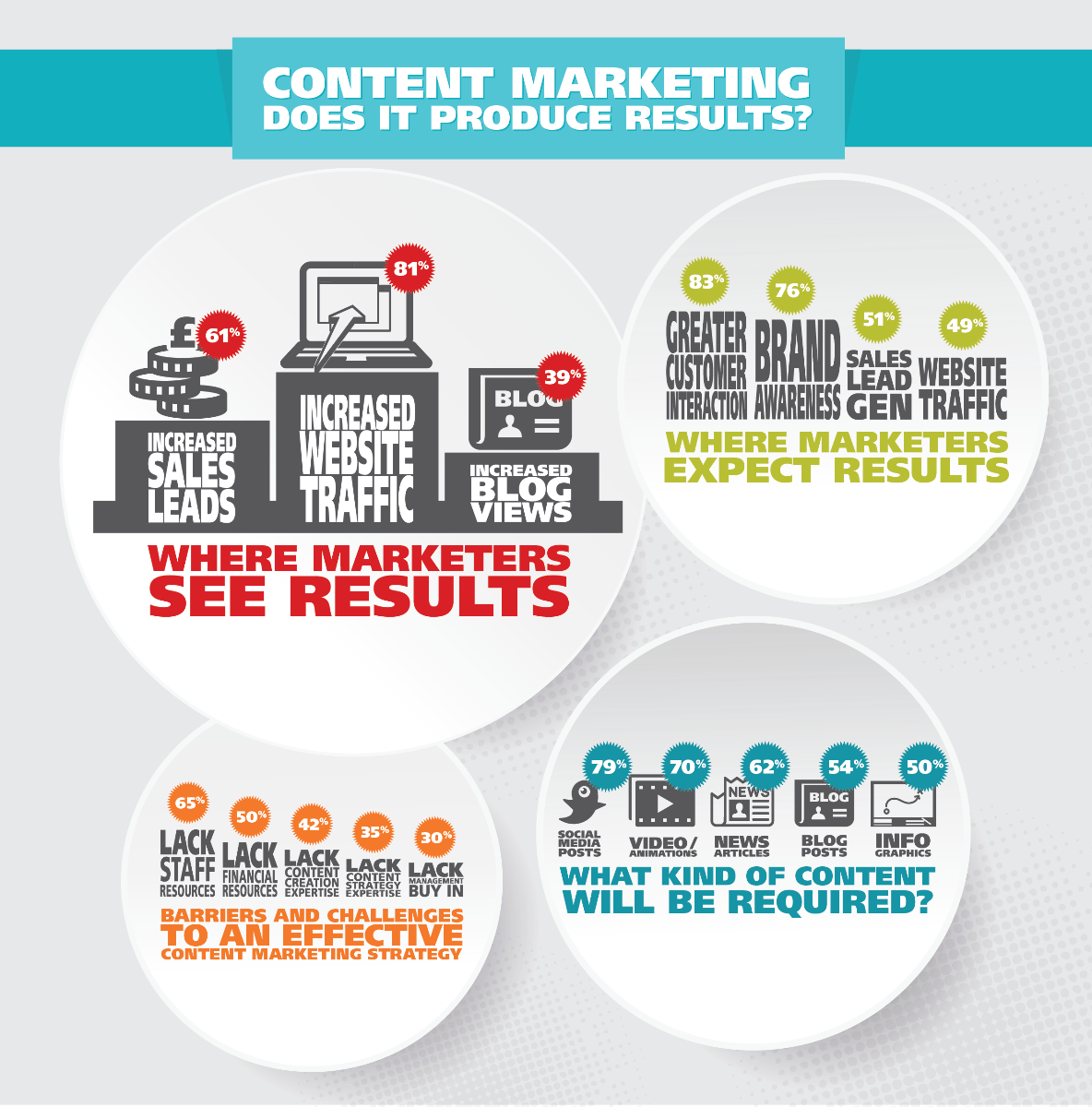Content marketing strategies work – so claims recent research by integrated communications agency Waggener Edstrom. The study, Content Marketing: Puncturing the Hype and Getting Practical, found that of the 82 per cent of organisations with a content marketing strategy, over 90 per cent see it as having a significant business impact through increasing web traffic and sales leads.
Key findings of the report include:
- The majority (85 per cent) of communication professionals currently using a content marketing strategy do so to promote awareness of their brand, closely followed by increasing engagement with customers (79 per cent) and generating sales leads (77 per cent).
- 70 per cent of marketers understand that content marketing helps drive sales leads more effectively, but 18 per cent still have no plans to implement a strategy and over one third (38 per cent) still question whether it can deliver measurable results.
- A lack of staff resources was identified as the number one challenge in implementing an effective content marketing strategy (63 per cent), closely followed by lack of budget (48 per cent) and lack of content creation expertise (41 per cent).
- 79 per cent believe a strong content marketing strategy will help them to use social media more effectively, followed by video and animation (70 per cent) and news articles (62 per cent)

Discussing what these findings mean for the PR industry, Colin Wheeler, head of insight and analytics, EMEA at Waggener Edstrom, says that it highlights that by understanding your audience and what they care about, you can shape your message and make it more relevant and engaging for your target customers and increase your effectiveness. The problem with content marketing as a concept, however, is that there is prejudice against it. Wheeler says: “Some of the respondents we spoke to felt that there is more than a whiff of the ‘Emperor’s New Clothes’ about much of the content marketing discussion; and I would agree with them. But content marketing is not the ‘same as what we have always done’, it is a reaction to – and development of – the increasingly fragmented and diverse mix of channels and media which we are all exposed to nowadays.”
Wheeler accepts that content marketing is not new, but these days content has more significance than previously: “Now the ‘content wrapper’ is equal in importance, due to the need to achieve cut-through in our fragmented and noisy media landscape. This tension makes sense as content can be created in so many ways; images and video are no more expensive to distribute than text, interactive content is readily achievable.”
The important thing is to create content which responds to customer issues in the formats customers want. Wheeler explains: “We are all busy people and much of what we are busy with is – to a degree – ordinary, even for those that absolutely love their job. So something that engages, entertains and tells you something you didn’t know, makes you think about something else for a moment: something that you care about, something which you value.”
There is a strong business case for implementing content marketing strategies as the study finds that for those already implementing content marketing, there are boosts for web-traffic, sales/lead generation and brand awareness. However, Wheeler does recognise that there are obstacles to overcome: “A broader range of content types necessitates working with partners who have the right experience. Budgets remain tight; for agency fees, new hires with relevant expertise and production costs.”
In conclusion, Wheeler says that content marketing strategies are a must: “We must look past the smoke and mirrors, and identify – for the audiences that are important to us – the content that is important to them, and create it. Because if we do not, our competitors absolutely will.”
Background
The report is based on a survey of over 150 marketing and communication professionals with decision-making responsibilities across EMEA. The full results of the content marketing survey can be found here.
PR Masterclass: The Intersection of PR and GEO
Wednesday 25th February, both virtual and in person tickets are available.
PR MasterclassIf you enjoyed this article, sign up for free to our twice weekly editorial alert.
We have six email alerts in total - covering ESG, internal comms, PR jobs and events. Enter your email address below to find out more:





